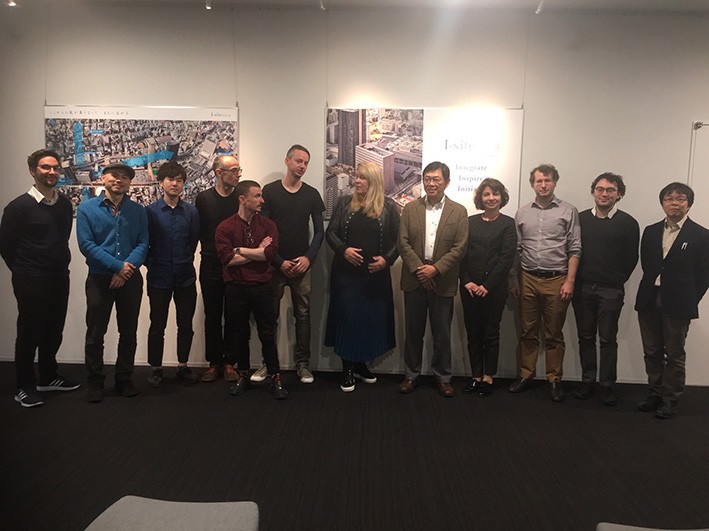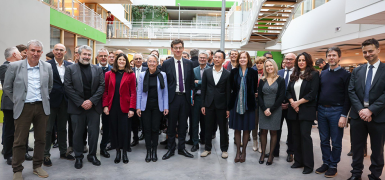(France)/CREST(Japan)/DFKI(Germany)
 The project's experimental framework focuses on cognitive and emotional biases and nudges in verbal and visual interactions with robotic systems, chatbot, IOT.... with multimodal sensors. The areas of application envisaged are education and continuous learning. A research axis also focuses on the study of different cultural approaches. The ethical dimensions
The project's experimental framework focuses on cognitive and emotional biases and nudges in verbal and visual interactions with robotic systems, chatbot, IOT.... with multimodal sensors. The areas of application envisaged are education and continuous learning. A research axis also focuses on the study of different cultural approaches. The ethical dimensions
of these systems will also be analyzed. The underlying theories include: affective computing (R. Picard), affective sciences (K. Scherer), emotionality and rationality (A. Damasio), Nudge (behavioural economics, R. Thaler) and game theory as an experimental framework. This approach is based on multidisciplinary collaboration between computer scientists, linguists, economists and lawyers.
The team
DATAIA "Bad Nudges, Bad Robots" project (Paris-Saclay)
Laurence Devillers, Professor, AI, Affective computing & Ethics,
Sorbonne/CNRS-LIMSI
Ioana Vasilescu, Researcher, Linguistic, CNRS-LIMSI
Serge Pajak, Associate professor, Behavioral economics, Université
Paris-Sud/RITM
Fabrice Le Guel, Associate professor, Behavioral economics, Université
Paris-Sud/RITM
Théo Marquis, PhD student, Behavioral economics, Université
Paris-Sud/RITM
Hugues Ali Mehenni, PhD student, AI, Université Paris-Sud/CNRS-LIMSI
CREST "Experiential supplements" Project (Osaka/DFKI)
Koichi Kise, Professor, Pattern recognition, AI & HCI, Osaka
Prefecture University
Kai Kunze, Associate Professor, Wearable & ubiquitous computing, Keio
University
Sohei Wakisaka, Researcher, Cognitive science & somatics, Tokyo
University
Motoi Iwata, Associate professor, Computer vision, Osaka Prefecture
University
Olivier Augereau, Research assist. professor, Pattern recognition &HCI,
Osaka Prefecture Univ.
Benjamin Tag, Researcher, Cognition-aware systems & ubiquitous
computing, Keio University
Shoya Ishimaru, Researcher, Human-Computer Interactions, DFKI










